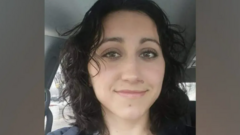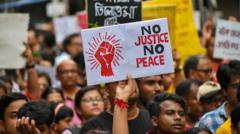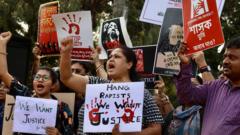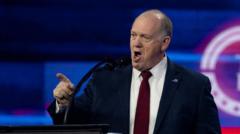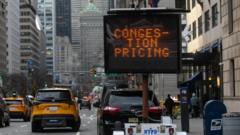Once a promising individual from a well-known Maryland family, Luigi Mangione's shocking arrest has left friends and family reeling as details of his turbulent life emerge.**
Unraveling the Mystery Behind Luigi Mangione: From Prominence to Paranoia**
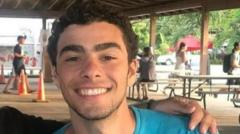
Unraveling the Mystery Behind Luigi Mangione: From Prominence to Paranoia**
The arrest of Luigi Mangione in connection with the murder of UnitedHealthcare's CEO has raised questions about his past and motives.**
The recent arrest of 26-year-old Luigi Mangione, linked to the fatal shooting of UnitedHealthcare CEO Brian Thompson in New York City, has caused shockwaves across his affluent Maryland community. A bright academic success story, Mangione, hailing from a prominent family, graduated at the top of his class from the elite Gilman School in Baltimore and went on to earn advanced degrees from the University of Pennsylvania. However, the circumstances surrounding his arrest have demonstrated a darker turn in his narrative that has left friends and family bewildered.
According to law enforcement, Mangione is alleged to have been driven by resentment towards what he labeled as "parasitic" health insurance companies. Hours before his arrest at a McDonald's in Altoona, Pennsylvania, police discovered him in possession of a firearm, cash, multiple fake IDs, and a handwritten note that voiced apparent grievances against corporate America. His family, known for their local business endeavors, expressed disbelief at the situation, with cousin Nino Mangione calling the event a "shock" to their close-knit community.
Former acquaintances describe Mangione, who previously lived in a surfing community in Hawaii, as intelligent and amicable—traits evidenced by his tenure as valedictorian. While some attribute his aggressive sentiments toward the medical system to personal health battles, including debilitating back pain that forced him to leave Hawaii, they cannot reconcile this with the violent act he is accused of committing.
Investigators have pointed to curious details surrounding the case, such as phrases found on shell casings that might hint at Mangione's articulate yet derogatory view of insurance tactics. Friends who knew Mangione further highlighted his struggles with chronic pain, which reportedly did not align with his demeanor, leaving many shocked that he could be involved in such a crime.
Amid the swirling storm of speculation and grief, one poignant detail that has emerged is Mangione's complicated relationship with literature. His apparent interest in works discussing chronic conditions and even a controversial text by Theodore Kaczynski—the infamous Unabomber—has raised eyebrows, hinting at a possible descent into disillusionment in the face of personal struggles.
As the investigation continues and the legal proceedings unfold, the community is grappling with the tragic juxtaposition of Mangione’s former promise against the backdrop of a violent crime that has now forever altered the lives of many. For the families, friends, and those affected, this incident serves as a sobering reminder of the potential darkness that can lurk beneath the surface of success.
According to law enforcement, Mangione is alleged to have been driven by resentment towards what he labeled as "parasitic" health insurance companies. Hours before his arrest at a McDonald's in Altoona, Pennsylvania, police discovered him in possession of a firearm, cash, multiple fake IDs, and a handwritten note that voiced apparent grievances against corporate America. His family, known for their local business endeavors, expressed disbelief at the situation, with cousin Nino Mangione calling the event a "shock" to their close-knit community.
Former acquaintances describe Mangione, who previously lived in a surfing community in Hawaii, as intelligent and amicable—traits evidenced by his tenure as valedictorian. While some attribute his aggressive sentiments toward the medical system to personal health battles, including debilitating back pain that forced him to leave Hawaii, they cannot reconcile this with the violent act he is accused of committing.
Investigators have pointed to curious details surrounding the case, such as phrases found on shell casings that might hint at Mangione's articulate yet derogatory view of insurance tactics. Friends who knew Mangione further highlighted his struggles with chronic pain, which reportedly did not align with his demeanor, leaving many shocked that he could be involved in such a crime.
Amid the swirling storm of speculation and grief, one poignant detail that has emerged is Mangione's complicated relationship with literature. His apparent interest in works discussing chronic conditions and even a controversial text by Theodore Kaczynski—the infamous Unabomber—has raised eyebrows, hinting at a possible descent into disillusionment in the face of personal struggles.
As the investigation continues and the legal proceedings unfold, the community is grappling with the tragic juxtaposition of Mangione’s former promise against the backdrop of a violent crime that has now forever altered the lives of many. For the families, friends, and those affected, this incident serves as a sobering reminder of the potential darkness that can lurk beneath the surface of success.


